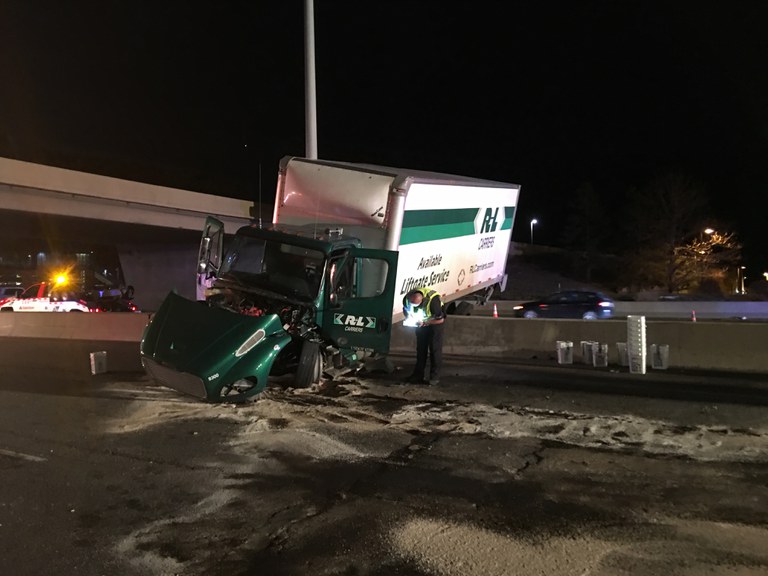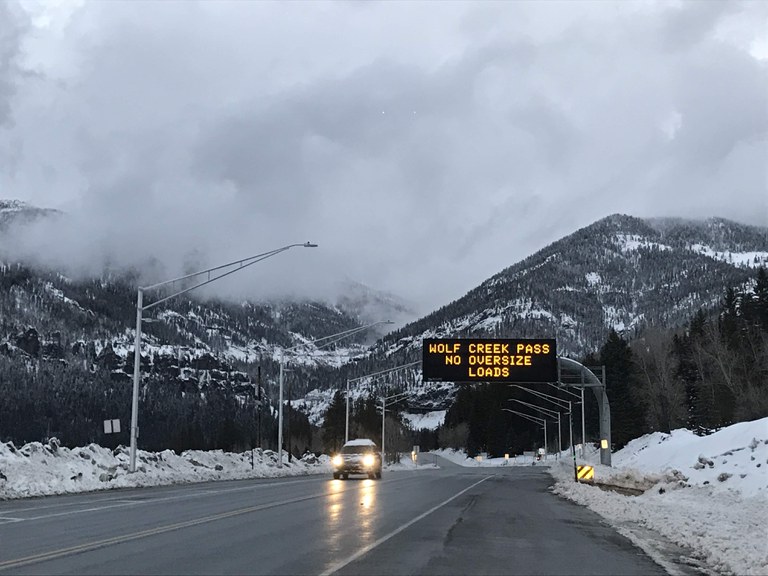Real-Time Operations
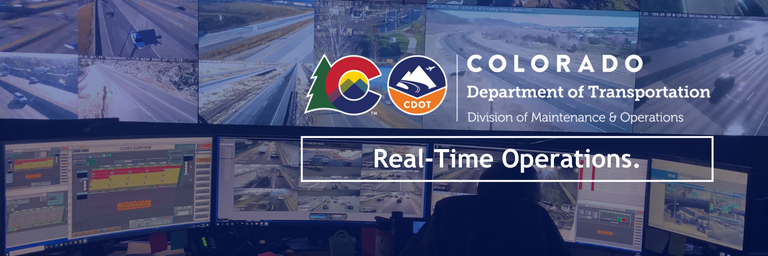
We engineer. We maintain. We operate our roadways. And it takes all of us working together.
Our Mission
Our mission is to improve the safety and efficiency of Colorado's transportation system primarily through two programs: Traffic Operations Centers and Traffic Incident Management.
Our Purpose
The purpose of CDOT's Real-Time Operations is to ensure safe, efficient and reliable transportation across Colorado's roadways. Specifically, we aim to:
Enhance Safety
- Reduce crashes by identifying and addressing hazardous conditions promptly.
- Provide timely alerts to drivers about weather, road closures, or crashes to prevent further incidents.
Minimize Traffic Disruptions
- Quickly respond to and manage incidents like crashes, vehicle breakdowns, or debris to restore traffic flow.
- Optimize traffic signals and manage congestion to reduce delays.
Improve Mobility and Efficiency
- Keep traffic moving during major road closures by providing alternate routes.
- Coordinate resources, such as CDOT's Safety Patrol and Incident Response Teams, to clear incidents off the roadways and alleviate delays.
Support Emergency and Disaster Response
- Act as a central hub to coordinate responses during emergencies like severe weather, wildfires impacting state highways or other major crisis events.
Provide Reliable Traveler Information
- Empower the public with real-time updates about road conditions, construction, closures or travel times via COtrip.org and the COtrip Planner app to help them plan safer and more efficient trips.
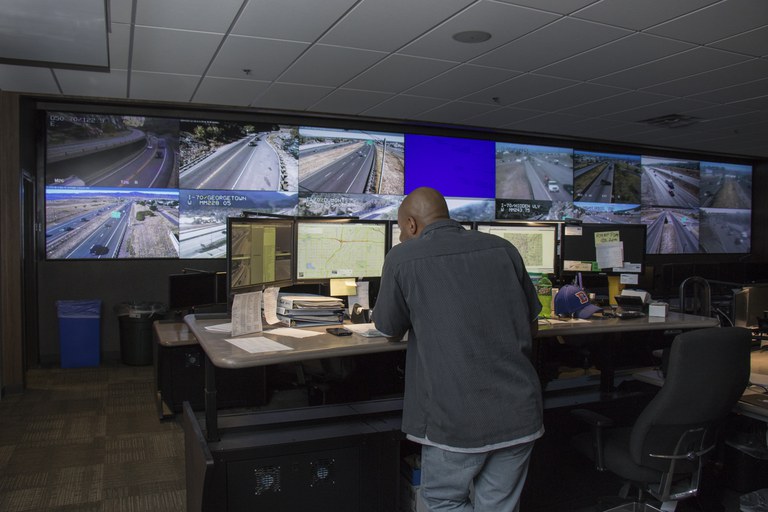
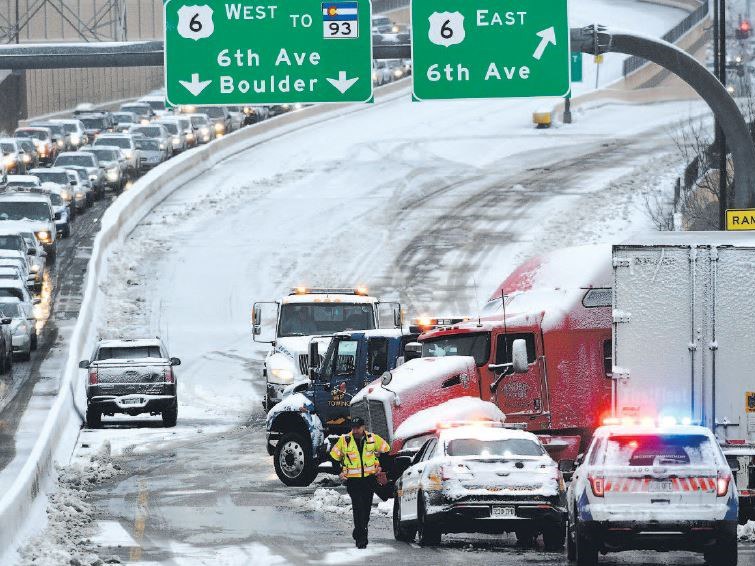
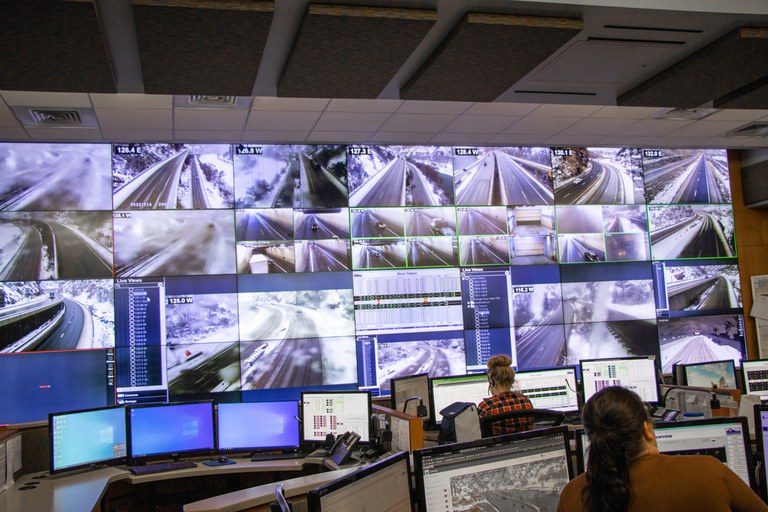
Traffic Operations Centers
CDOT's Real-Time Operations uses three Traffic Operations Centers to provide statewide coverage around the clock, 365 per year. These Operations Centers are located in Golden, which serves the Denver metro area, North Front Range and Northeastern Colorado; Pueblo, which serves Southeast Colorado and the San Luis Valley; and the Hanging Lake Tunnel, which serves the Western slope. The Operations Centers are the nerve centers for managing Colorado's state highways and interstates in real time. The following are the primary services provided by each Operations Centers:
Traffic Monitoring and Incident Detection
- Operates a network of traffic cameras, sensors, and other tools to monitor road conditions 24/7.
- Detects incidents like crashes, disabled vehicles, debris and congestion.
- Tracks weather conditions that may affect roadways, such as snow, ice and high winds.
Real-Time Traffic Management
- Coordinates responses to traffic incidents to reduce congestion and ensure safety.
- Adjusts ramp meters and variable speed limits to improve traffic flow.
- Controls Variable Message Signs (VMS) to provide drivers with warnings, detours, or updates.
Incident Response Coordination
- Communicates with CDOT's Incident Response Team, maintenance crews, law enforcement, and emergency services to quickly address road hazards and clear incidents.
- Dispatches resources like snowplows or CDOT crews as needed.
Traveler Information Services
- Updates platforms like COtrip.org, the COtrip Planner app and X with real-time information on traffic, road closures, weather and construction.
- Issues alerts for emergencies, such as avalanche slides, wildfires or extended closures.
Data Collection and Analysis
- Collects data on traffic patterns, incidents, and weather to identify trends and improve long-term transportation planning.
- Analyzes data to enhance safety, optimize road capacity, and reduce delays.
Incident Response Team
CDOT's Incident Response Team (IRT) is dedicated to ensuring safety, efficiency, and rapid recovery during incidents on Colorado's state highways and interstates. Their primary responsibilities include:
Quick Clearance
- Responding promptly to crashes, disabled vehicles, debris, or hazardous materials on the road.
- Clearing incidents to reduce congestion and prevent secondary crashes caused by traffic backups.
Traffic Control
- Setting up signs, cones, or other traffic control measures to guide drivers safely around an incident.
- Collaborating with law enforcement to close lanes or reroute traffic when necessary.
Assisting Motorists
- Providing assistance to drivers with minor vehicle issues, such as flat tires, dead batteries, or running out of fuel.
- Ensuring stranded motorists are safe until help arrives.
Safety and Hazard Mitigation
- Addressing immediate roadway hazards, such as spilled debris or other dangers that could lead to crashes.
- Supporting emergency responders by managing the scene and ensuring a safe working environment.
Supporting Emergency Operations
- Assisting during sever weather, such as snowstorms, floods, or wildfires, to keep roads safe and functional.
- Helping coordinate multi-agency responses during major incidents or disasters.
Real-Time Communication
- Providing updates to CDOT's Traffic Operations Centers to keep the public informed about incidents, lane closures, and delays through COtrip.org.
- Coordinating with other agencies, such as law enforcement, fire departments, and towing services.
The IRT is vital for maintaining roadway safety and reducing delays, helping Colorado drivers get back on the road as quickly and safely as possible after unexpected disruptions.
